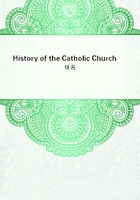
第30章
Several months passed and no further steps were taken by Rome to meet the crisis. This delay was due in great measure to the death of Maximilian I. (1519), and to the sharp contest that ensued. The two strongest candidates were Charles I., King of Spain, who as son of Philip the Handsome (son of Maximilian), and of Joanna of Castile (daughter of Ferdinand and Isabella), was ruler of Spain, the Netherlands, Austria, and Naples, and Francis I., King of France. For centuries the Pope had striven to prevent the union of Naples and the Empire, and with good reason, for such a union must prove almost of necessity highly detrimental to the safety of the Papal States and the independence of the Holy See. For this reason, if for no other, Leo X.
did not favour the candidature of Charles. Nor could he induce himself to display any enthusiasm for the cause of Francis I., whose intervention in Italian affairs the Pope had good grounds to dread. As against the two the Pope endeavoured to induce the princes to elect one of their own number, preferably the Elector of Saxony. But the Elector showed no anxiety to accept such a responsible office, and in the end Charles succeeded in winning over to his side the majority of the princes. He was elected and proclaimed Emperor under the title of Charles V. (1519).
While Rome remained inactive, and while the opponents of Luther in Germany were handicapped by the crude diplomacy of Miltitz, Luther was gaining ground with marvellous rapidity. His success was due partly to his own great personal gifts as a popular demagogue, and partly also to the fact that no man knew better than he how to make capital out of the ecclesiastical abuses of the time, and to win to his side all who had any reason to be discontented with the existing order. He was strengthened very much by the inactivity of the German bishops, who seemed unwilling to take any severe measures against him, by the help and encouragement of Frederick of Saxony, who, during the interregnum and for some time after the election of Charles V. was the real administrator of Germany, by his union with the leading Humanist scholars and professors, especially Erasmus, all of whom regarded Luther merely as the champion of liberty against the obscurantism of the Scholastics, and by his secret alliances with discontented nobles, such as Ulrich von Hutten and Franz von Sickingen, whose sole hope of improving their fortunes lay in the creation of public disorder.
Johann Eck, Luther's chief opponent, realising that there was no hope of stirring up the German authorities to take action, hastened to Rome to impress upon the Pope and his advisers the extreme gravity of the situation, and to urge them to proceed against the revolt with all possible energy and despatch. Luther himself recognised clearly enough that the crisis he had long foreseen was at hand, and he began to prepare men's minds for complete rupture with the Church by his sermon on excommunication in which he bade defiance to the ecclesiastical authorities. He threw himself with renewed energy into the fray, turning out volume after volume with feverish rapidity, each more violent and abusive than its predecessor, and nearly all couched in language that was as intelligible to the peasant as it was to the professor. In his /Address to the Nobles of Germany/, in his works /On the Mass/, /On the Improvement of Christian Morality/, and /On the Babylonian Captivity/, he proclaimed himself a political as well as a religious revolutionary. There was no longer any concealment or equivocation. The veil was lifted at last, and Luther stood forth to the world as the declared enemy of the Church and the Pope, the champion of the Bible as the sole rule of faith, and the defender of individual judgment as its only interpreter. In these works he rejected the Mass, Transubstantiation, vows of chastity, pilgrimages, fasts, the Sacraments, the powers of the priesthood, and the jurisdiction and supremacy of the Pope. With such a man there could be no longer any question of leniency or of compromise. The issues at stake, namely, whether the wild and impassioned assertions of a rebel monk should be accepted in preference to the teaching of Christ's Church, ought to have been apparent to every thinking man; and yet so blinded were some of his contemporaries by their sympathy with the Humanists as against the Theologians, that even still they forced themselves to believe Luther sought only for reform.
At Rome the trouble in Germany was one of the main subjects that engaged the attention of the Curia. It was felt that the time had come when decisive measures must be taken. After long and anxious deliberations Leo X. published the Bull, /Exsurge Domine/ (June 1520), in which forty propositions taken from Luther's writings were condemned, his works were ordered to be burned, the full penalties of excommunication were proclaimed against him unless he withdrew his errors and made his submission within sixty days, while his aiders and abettors were besought in the most touching terms to abandon the dangerous path into which they had been betrayed. Had such a pronouncement been issued at the beginning of the movement it might have done much to restore peace to the Church, but, coming as it did at a time when Luther's movement, backed by all the revolutionary forces of Germany, had already acquired considerable dimensions, it failed to put an end to the tumult. Besides, the papal decision was deprived of much of its force by the fact that Eck, Caraccioli, and Aleandro were appointed as a commission to superintend its execution.